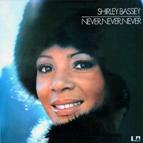Many big pops hits of particularly the 60s began in Europe and sung in their native language, but there were a band of elite lyricists who converted the songs to English with great aplomb and were thus rewarded with big hit singles. Petula Clark’s Sailor, Tom Jones’ Love Me Tonight, Dusty Springfield’s You Don’t Have To Say You Love Me and Ken Dodd’s Promises are all good examples of this.
Tony Renis was a successful Italian composer, producer and occasional actor. He was born in Milan and got his break when he appeared alongside Adriano Celentano impersonating Dean Martin and Jerry Lewis. His cabaret act included covers of American and Italian songs and in 1961 entered the prestigious San Remo Festival with the song Pozzanghere.
The following year he collaborated with Alberto Testa on a song called Quando Quando Quando which translates as When When When. Tony recorded the original version but it was covered with more success later the same year by Pat Boone who gave himself a writing credit claiming he wrote the English lyric, but a source at the songwriters Hall Of Fame claim it was translated by Ervin Drake. The song was given extra kudos when it featured in the 1962 Italian film The Easy Life.
In the late 60s, Tony met with a successful Italian pop singer called Anna Maria Quaini who performed under the professional name Mina. She dominated the Italian charts for fifteen years racking up 77 albums and 71 singles. Mina was a Catholic girl and in 1963 fell pregnant after an affair with a married actor and Italian radio stations tried to ban her music. Her image of shaved eyebrows and song content about sex appeal and smoking went against her, but her three-octave range voice reigned supreme and her fans continued to buy her music. In 1972 Tony wrote a song for her called Grande Grande Grande. The song zoomed up the Italian chart and eventually dethroned John Lennon’s Imagine to give her another chart topper.
Norman Newell was head of EMI’s Columbia subsidiary as well as a producer and songwriter. He produced songs for Edmund Hockridge, Petula Clark, Anne Shelton, Alma Cogan and Danny Williams. He began writing songs in the mid-50s including Wait For Me and By The Fountains Of Rome. Under the pseudonym David West he wrote Portrait Of My Love for Matt Monro, Reach For The Stars for Shirley Bassey and the 1962 UK entry to the Eurovision Song Contest, Say Wonderful Things by Ronnie Carroll.
In 1973, he heard Mina’s Grande Grande Grande and fell in love with it and decided to write the English lyric and rename it Never Never Never but kept the original title in brackets. He had worked for many years alongside Shirley Bassey and thought the song would be perfect for her. He called her to his office where he played it to her and she fell in love with it too. The song zoomed up the UK chart coming to rest at number eight. It performed well in many countries including number one in Australia and South Africa.
In America, Shirley is classed as a one-hit wonder! Her only brush with the US Top 20 was with Goldfinger in 1965 for which she won a Grammy. “I suppose I should feel hurt that I’ve never been really big in America on record since Goldfinger”, she once remembered, “But, concert-wise, I always sell out.”
Shirley still performs Never Never Never to this day alongside her catchy hits from the fifties and the three James Bond Themes she has recorded.
Tony Renis, who is a personal friend of Ronald and Nancy Reagan, continued to write songs for Diana Ross, Julio Iglesias and Lionel Richie and in the mid 90s launched the career of Nikki Costa – the daughter of the 50s bandleader Don Costa. He now organises the annual San Remo festival in Italy and organises concerts for Andrea Bocelli
Earlier this month, it was confirmed that Shirley will perform at Buckingham Palace alongside Elton John, Paul McCartney, Tom Jones and Cliff Richard as part of the Queen’s Diamond Jubilee celebrations.
